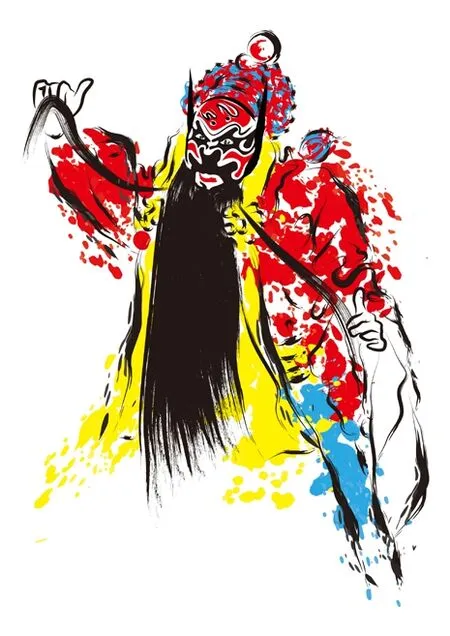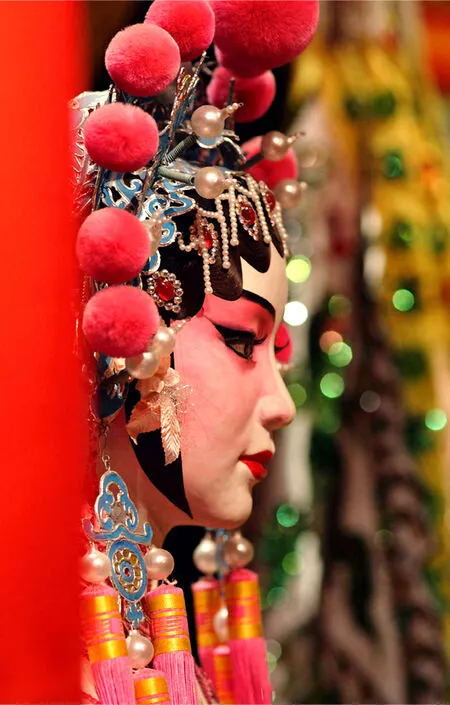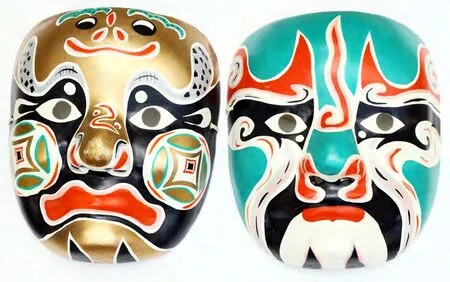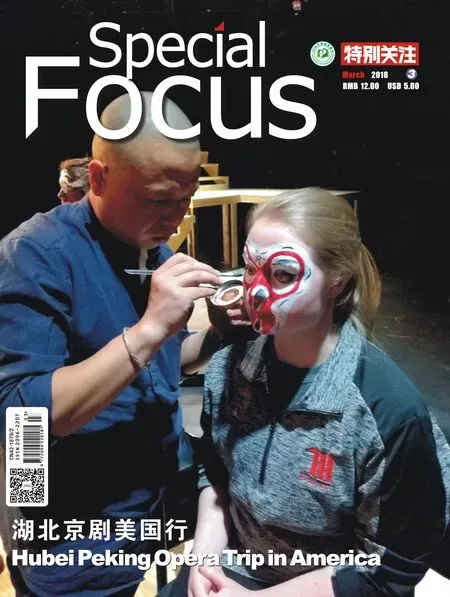On “Xi”
By Zhu Meihua & Zou Xinsheng
The Chinese character戏(xi),composed of six strokes, has polysemic meanings:drama, opera, play,trick, entertainment, and the like.戏 evolved from the ancient Chinese character 戲, which referred to a form of dancing where the dancer wielded weapons and wore a tiger mask. The dance was generally performed at rituals before military combat began or at sacred sacrificial ceremonies.Therefore, The whole word is composed of three parts: “tiger”placed on the top left of the character, “weapon” on the right,and “beans” on the bottom left.
Interestingly, people have many different explanations for the bottom of the character, and there is much controversy surrounding it. Some think it represents the beans prepared for the sacrificial ceremony, others think it is the drum or the mouth calling for victory in battle.

The modern version of the word“戏 ” is simplified in meaning: with又 (yòu, again) on the left and 戈(gē, halberd) on the right, denoting the above-mentioned connotations.Yet, what piques our curiosity is why the meaning of such a word has deteriorated into the common meaning of “play” or “trick” known to us today.
With the progress of time, war conflicts and traditional rituals are less frequent than before. As we became more civilized and leisure and entertainment increased, the character戏 gradually shook off the meaning of war or sacrifice and came to mean “performance.”So戏 is everywhere in Chinese performing arts: theater house( 戏院 xì yuàn), stage (戏台 xì tái),Peking Opera ( 京戏 jīng xì, also known as 京剧 jīng jù), Huang Mei Opera (黄 梅 戏 huáng méi xì,“Yellow Plum Theater,” a genre popular in Anhui), a theater buff (戏迷 xì mí), or an actor ( 戏子 xì zi, a derogatory term from the days when people looked down on thespians).

There are also many idioms containing the character 戏 . For example, 逢 场 作 戏 (féng chǎng zuò xì) originally referred to spontaneous performances that itinerant entertainers staged wherever they found a suitable place. Now, the idiom means “to do something absent-mindedly or not carefully.唱 对 台 戏 (chàng duì tái xì)described rival troupes doing similar shows concurrently to steal each other’s business.Now, any action done in opposition to one another can be a form of 唱对台戏.
It is worth noting that 戏 can also mean “play”or “make a joke of somebody” as in 嬉戏 (xī xì, to frolic), 戏弄 (xì nòng, to make fun of) and 戏谑(xì nuè, to banter or ridicule).
William Shakespeare once said in his play As You Like It, “All the world’s a stage/ And all the men and women merely players.” Chinese people have a similar saying that life is like an opera (人生如戏 rén shēng rú xì). It seems that both Westerners and Easterners have a constant need to change their roles and perform different parts according to the context and audience of the show. This teaches us to forget ourselves temporarily, to live as and with the characters in the play and enjoy the performance of the world to the fullest.◆


